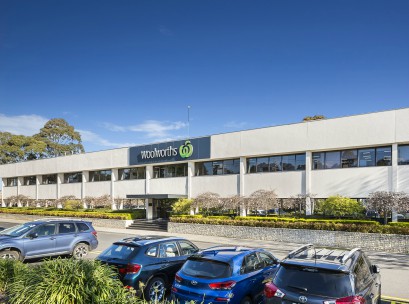
Supermarket giant Woolworths could face strikes at Victorian and NSW distribution centres as 2000 staff push for pay rises and job certainty.
The National Union of Workers last week lodged applications in the Fair Work Commission flagging possible strikes.
“Workers at four Woolworths distribution centes have applied for Protected Action Ballots,” a union spokeswoman told AAP on Sunday.
“The number of workers across the four sites is approximately 2000.”
The union is pushing for pay rises and more job security, with uncertainty over the future of the centres’ operations.
A Woolworths spokesman said the company was negotiating with staff.
“We will continue to work with our team members and their chosen representatives to get the right outcome at each of our sites,” he said.
“Our number one priority will remain our team members and the service to our customers.”
Staff at the centres still have to vote on whether they will agree to go on strike.
Meanwhile Woolworths’ board is also fighting a small cohort of activist shareholders intent on shining a light over the potential “adverse human rights impacts” of the company’s operations.
The group of 106 shareholders, whom together hold around 0.0097 per cent of shares on issue, has put forward a motion to be voted on at Woolies’ upcoming Annual General Meeting that would enable shareholders to pass resolutions expressing opinions or making recommendations about the management of the business.
The group, which is sponsored by The Australian Centre for Corporate Responsibility, hope to use that resolution to pass a subsequent motion that would put pressure on Woolworths’ board to produce an annual human rights impact report.
Woolworths has recommended shareholders vote against the proposal, saying that any such reform should include an “appropriate framework” for companies to deal with requests to “ensure that the resolutions are not used by groups of shareholders to dominate AGMs in the pursuit of specific philosophical or ideological objectives.”
“The directors note that Australian company law provides a range of ways in which shareholders can convey their opinions to a company or the directors about the management and strategic direction of the company,” Woolworths’ board wrote in response to the proposal.
“The directors also note that interest and advocacy groups have a range of avenues outside the AGM to engage with the company.”
In a statement in support of the motion attached to Woolworths’ AGM notice, the ACCR said that Australia’s approach to corporate democracy was inadequate compared to best practice in countries like the UK, US, New Zealand and Canada.
“The constitution of our company is not conductive to the right of shareholders to place resolutions on the agenda of a shareholder meeting,” the ACCR said.
“In our view, this is contrary to the long-term interests of our company, our company’s board, and all shareholders in our company.”
The ACCR also supports an adjoining resolution to recommend Woolworths file an annual human rights impact report, which activist shareholder say should address the UN’s Guiding Principles on Business and Human Rights, among other similar documents.
The proposal says the report should disclose no later than 90 days before an AGM, “where actual adverse human rights impacts are identified through the HRDD assessment, the nature of those impacts, and actions taken by our company in response, including remedying adverse human rights impacts.”
The ACCR pointed to a recent survey of large ASX-listed companies on measures they have in place for identifying, addressing and disclosing human rights related risk, which scored Woolworths at 20 per cent, as a reason for supporting the reporting proposal.
“Our company has extensive food and agricultural supply chains which expose us to significant risks: for example, our company, through its suppliers, has recently been implicated in reports of extreme labour exploitation on Australian farms,” the ACCR said, referencing a Four Corners investigation from 2015.
Responding to the human rights report proposal, Woolworths’ board said Woolworths’ already reports annually on its management of human rights matters in its Corporate Social Responsibility Report.
“Woolworths is committed to respecting human rights for its team members and the workers in its supply chain, in alighnment with the principles and guidance contained in the United Nations Guiding Principles on Business and Human Rights,” the board said.
The board further said a group-wide review is underway of ethical sourcing practices, which is expected to be completed in FY18, and that the company engaged in modern slavery legislation currently being prosed in Canberra.
Rogue director seeks appointment
Woolworths is also fighting the election campaign of Darebin City Councillor (VIC) Dr. Susan Rennie to the board.
Rennie, who nominated herself, believes Woolworths “needs more directors in tune with the global focus on corporate social responsibility.”
Noting Woolworths’ investment in pokies and former CEO Roger Corbett’s opposition to same-sex marriage, Rennie warned that Woolworths’ brand is “at risk”.
Woolworths board said it does not believe that Rennie is as qualified to serve on the board as other members, and that the board already has “strong skills and experience in corporate responsibility matters”.
Woolworths’ AGM will be held on the 23rd of November.
Woolworths has been contacted for comment.





